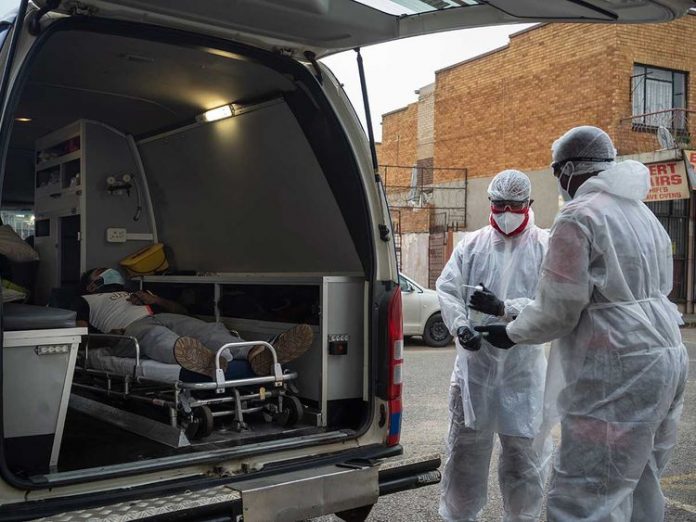JOHANNESBURG: South African President Cyril Ramaphosa on Tuesday urged wealthy countries not to hoard surplus doses of COVID-19 vaccine, saying the world needed to come together to fight the pandemic.
South Africa has recorded nearly half the coronavirus deaths in Africa, and the continent as a whole is struggling to secure sufficient vaccines to start countrywide inoculation programmes for its 1.3 billion people.
“We need those who have hoarded the vaccines to release the vaccines so that other countries can have them,” Ramaphosa told a virtual meeting of the World Economic Forum.
“The rich countries of the world went out and acquired large doses. … Some countries even acquired up to four times what their population needs … to the exclusion of other countries.” World Health Organization Director-General Tedros Adhanom Ghebreyesus last week described this unequal access as a “catastrophic moral failure”, urging countries and manufacturers to spread doses more fairly around the world.
Ramaphosa chairs the African Union, which this month secured 270 million shots for the continent to supplement 600 million doses coming from the COVAX scheme co-led by the WHO.
Those doses are expected to become available this year but none have arrived yet, while parts of Europe, Asia and the Americas are well into their vaccination programmes.
Britain has ordered 367 million doses of seven different vaccines – some already approved and some candidate drugs – for its population of roughly 67 million, while the European Union has secured nearly 2.3 billion doses for its 450 million people.
Ramaphosa, who has been criticized at home for not securing vaccines sooner, said African countries wanted quicker access.
“We are all not safe if some countries are vaccinating their people and other countries are not,” he said.
South Africa has recorded more than 1.4 million COVID-19 cases and 41,000 deaths, out of more than 3.4 million cases and 86,000 deaths continent-wide.
Pretoria’s efforts to secure vaccines for two-thirds of its roughly 60 million people have been complicated by its weak finances and because, as an upper-middle-income country, it has to self-fund its participation in COVAX. It is scheduled to receive 1.5 million doses of the AstraZeneca/Oxford University vaccine produced in India in January and February, and says it will get a further 9 million doses from Johnson & Johnson, but the timing is uncertain.

















